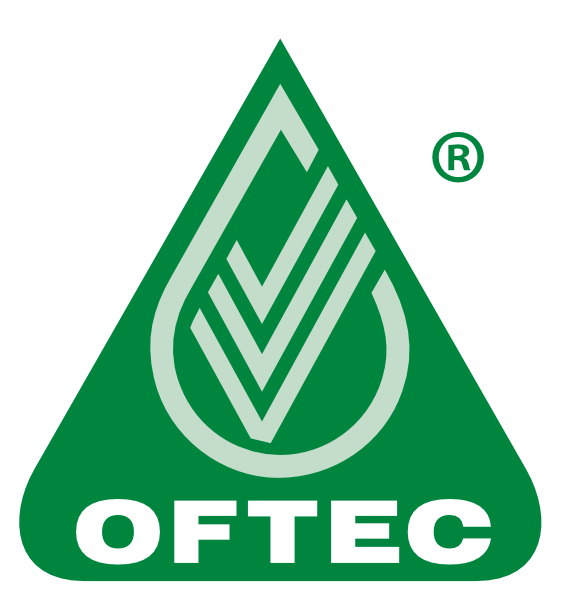Home guide to heat pumps
The information on this page provides general guidance; your local OFTEC registered technician will be able to provide further advice on your particular circumstances.
There are two types of heat pumps commonly used in domestic properties:
- Air source heat pumps (ASHP)
- Ground source heat pumps (GSHP)
Both are similar in design and operation, but as their names imply, an ASHP takes heat energy from the air around it, and a GSHP takes heat energy from the ground via large buried pipes. Having captured heat energy, the heat pump transfers it to a refrigerant gas, which is then compressed to raise its temperature. In the case of traditional water-based heating systems, water is then passed over a heat exchanger which absorbs the heat from the refrigerant before it is distributed around the heating system. The heat produced by a heat pump system is generally at a lower temperature than a traditional heating system. This makes them ideal for underfloor heating systems.
If you are considering a heat pump as a direct replacement for a traditional liquid fuel or gas-fired boiler, you should be aware that, unless a less efficient high temperature output heat pump is installed, the output of radiators will be significantly reduced due to the lower temperature of the heating system water. If the heat requirement for the room remains the same, it is probable that the radiators will have to be changed for larger ones to produce an equivalent heat output. Your OFTEC registered heat pump installer will be able to establish the heat requirement for each room to see if this is the case.
Building regulations
For reasons of safety and performance, the installation of heat pumps and associated heating systems is work covered by building regulations and should only be undertaken by competent technicians that have undertaken appropriate training and assessment. In some locations planning permissions may also need to be granted.
Hybrid heating systems
It is possible to combine a liquid fuel or gas-fired appliance with a heat pump on the same system to form what is known as a ‘hybrid heating system’. This has practical benefits in that the heat pump alone can be used in milder weather and the boiler can take over, or even run in parallel to the heat pump, in the winter when the building’s heat load is at its maximum.
Such systems can be designed using individual off-the shelf components or a manufacturer may provide a package comprising of a boiler, heat pump, integration components, and a control unit.
System controls
Heat pump systems are typically controlled by the end user via weather compensation or internal temperature control, such as a room thermostat, together with a timer or programmer to control space heating.
Hybrid systems that combine a boiler with a heat pump require more sophisticated controls. Typically, the manufacturer of the system components will provide a dedicated control system that is capable of determining the best technology to use, depending upon a set of preprogramed parameters such as temperatures, unit cost of energy and equipment performance, to ensure your system is always working as efficiently, and economically, as possible. Your OFTEC registered heat pump installer will be able to offer advice on what controls best suit your needs or the needs of the system.
Maintenance
Heat pump systems require very little maintenance but should still be checked periodically by an OFTEC registered heat pump installer, who should leave written details of any maintenance work done and any observations. He/she may also advise you if there are any steps you could take to ensure that everything is working properly.
Government incentive payments
Heat pumps are regarded as being a ‘renewable heating technology’ in that they harness energy from the environment, thus reducing the reliance on fossil fuels to meet our home energy needs. The net result being a reduction in carbon dioxide emissions released to the environment – a contributing factor in global warming.
In some regions, government incentive payments are available to offset the high upfront cost of installing renewables technologies. Your OFTEC registered heat pump installer will be able to provide details of any payment scheme available in your region and any acceptance criteria that you will have to satisfy. There may also be a requirement for the installer and equipment used to be registered with the Microgeneration Certification Scheme (MCS). You may also be able to claim payments for the renewable element of a hybrid heating system providing the renewable element can be metered.
Please wait ...
